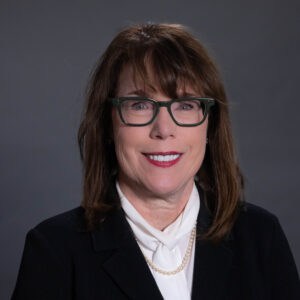Learn how survivor-centered approaches are transforming justice systems, with groundbreaking results in Tarrant County, Texas.
As the conversation around human trafficking gains urgency in the public eye, a transformative shift puts survivor care at the center of the process, from the first intervention on the streets all the way to a courtroom. Communities around the world are confronting outdated systems that label survivors as criminals, instead placing accountability on the perpetrators of human trafficking who force victims into child exploitation and sexual violence.
“Jurors are beginning to see survivors as victims, not criminals,” said Lindy Borchard, former Assistant Criminal District Attorney in Tarrant County, Texas. “A measure of our society is how we protect our most vulnerable.”
Human trafficking is a modern form of slavery where offenders exploit the most vulnerable populations, including children, through force, fraud, or coercion. Although, when it involves a child, there is no need to prove force, fraud, or coercion—because a child can never consent to sex work under any circumstances. Nearly 50 million people worldwide have been trafficked, and 12 million of them are vulnerable children, according to the International Labour Organization and the United Nations.
Understanding these dynamics is critical to strengthening survivor care and tackling this global issue. Systemically, law enforcement, prosecutors, and judges need added support and training in recognizing and prosecuting child exploitation and sex trafficking cases. Proving force, fraud, or coercion— critical elements in such cases—requires evidence that can be challenging for survivors and vulnerable children to provide. Survivors rarely self-identify as victims because predators manipulate them into believing they are complicit through mental, emotional, and physical abuse.
The research centering survivor experiences is strong. According to the Victim Rights Law Center, decreasing criminalization helps survivors feel safer after sexual violence and removes damage caused by a criminal record. The Victims Right Law Center also notes that survivors face significant legal needs, including housing, custody battles, and restraining orders against traffickers.
In fact, a 2021 report co-published by The Avery Center and National Survivor Law Collective names ‘a legal desert’ for trafficking survivors seeking legal justice, in a landscape devoid of resources.
“Even once survivors are identified, their legal needs are massive and dismally underfunded, “ said Renata Parras, Our Rescue’s General Counsel and Senior Vice President, Strategic Partnerships as well as one of the founding members of the National Survivor Law Collective.
Renata points out gaps such as even providing legal counsel to survivors during prosecution, understanding their interests may not always align with prosecutors.
“It’s beneficial to have a team of providers looking out for the best interest of the survivor,” Parras added. ”We also need to focus on prevention and the root causes that put people at risk for human trafficking, including homelessness and addiction.”
For survivors, seeking justice can be just as traumatic as the sexual exploitation they endured. We want to shine a light on the justice system in Tarrant County, Texas as one such place leading the way, reshaping how human trafficking cases are approached through a trauma-informed lens.
A Survivor’s Courage in the Courtroom
In Tarrant County, Texas, Lindy Borchardt faced the jury for opening statements in a complex case involving drug and child exploitation and sex trafficking. As a prosecutor, this is the moment where she lists the witnesses set to testify, but this moment was different.
She scanned the courtroom for one key witness, Rebekah, a teenage survivor. Survivors often face retraumatization in the courtroom, and Borchardt was unsure if Rebekah would be ready to confront her trafficker or if so, what her testimony would be. But then, Rebekah arrived, accompanied by a survivor advocate providing crucial support and a turning point.
“I am asking them to come into the courtroom, often in front of their trafficker, and share the most horrific details of their lives,” says Borchardt. “They’ve been told for years that no one will believe them. It’s my responsibility to protect them. Will they be viewed as a victim? Will they be believed?”
Evolving into a Survivor-Centered Prosecutor
Borchardt solely specializes in prosecuting human trafficking cases, but thinks of herself as a ‘victim-centered prosecutor.’ For Borchardt, this dually-purposed work requires more than legal expertise. It demands sensitivity, compassion in her commitment to survivors, who often carry immense shame and fear.
Across the US, some states have passed legislation calling for the expungement of criminal offenses for victims of human trafficking. The American Bar Association differentiates trafficking as being inherently coercive and non-voluntary. What’s known as ‘vacatur laws’ allow survivors to clear their records of offenses tied to their trafficking. The ABA has adopted resolutions for lawyers and lawmakers to support action that can essentially clear victims’ records.

Our Rescue Board Member and Former Assistant Criminal District Attorney in Tarrant County, Texas
“But, to date, no such compropable federal vacatur laws exist. It’s why we are seeking support for legislation that would allow survivors to expunge criminal records on a national level, “ said Parras. “The Trafficking Survivors Relief Act of 2025 would provide for that, which many advocacy organizations support.”
The Department of Justice’s National Strategy to Combat Human Trafficking outlines similar priorities. In this 2022 report, the DOJ states that the FBI will develop victim centered, trauma-informed, and culturally sensitive operational protocols to discourage the arrest of adults providing commercial sex acts for prostitution-related crimes. This focus aligns with longstanding evidence of victims’ desires to escape trafficking. A 2003 study first published in the Scientific Journal of Trauma Practice found that 89-percent of women in prostitution want to escape.
“I have never met a victim who said she wanted to grow up and be a prostitute,” says Borchardt. “Their reality is often shaped by poverty, coercion, and addiction. My heart goes out to these victims because when you truly get to know their backgrounds, it’s really a failure to society of what we are providing our vulnerable children.”
The National Center for Missing & Exploited Children offers insight on the most vulnerable victims, citing 1 in 6 runaways reported to in 2021 were likely victims of child sex trafficking.
Trauma-Informed Advocacy Spurs to Action
Borchardt points to a multidisciplinary approach in Tarrant County where prosecutors work closely with law enforcement, survivor advocates, and community organizations. For example, during a sting operation, victim advocates are present alongside police.
“In these operations, we don’t arrest the victims,” Borchardt explains. “Instead, victim advocates are present in the same room when a survivor walks in. This immediate support helps build trust and provides a safety net for the survivor to share their story.”
This paradigm shift includes adopting survivor-centered language, recognizing trauma bonds, and creating environments where survivors feel safe to share traumatic experiences after sexual violence and seek long-term recovery. Borchardt also notes successful strides with programs like RISE Court, which identifies vulnerable women with extensive histories of prostitution. The program expedites them through the criminal justice system, addressing underlying issues like addiction, often exploited by traffickers to maintain control.
From Trauma to Trust: Rebekah’s Impact
Rebekah’s courage in testifying before the jury represented a turning point. With trauma-informed advocacy empowering her, the jury took less than ten minutes to sentence the defendant to 99 years in prison—a monumental victory for all survivors seeking justice.
“I could not have been prouder of Rebekah,” said Borchardt. “Her testimony was harrowing
and honest. She recounted the manipulation and coercion she and another teenager had
endured and the trauma they suffered at the hands of the trafficker.”
Borchardt knows that prosecuting human trafficking cases is a daunting task day after day, but believes her role is not just about enforcing the law but extending her commitment far beyond the courtroom. She believes we all can play a part in this transformation, with community awareness creating a needed shift in mindset and understanding lived experiences.
